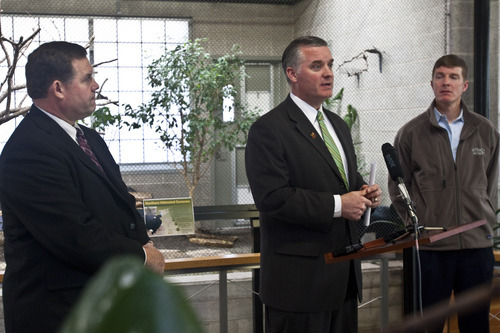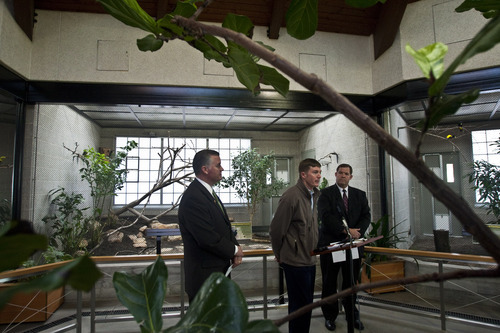This is an archived article that was published on sltrib.com in 2011, and information in the article may be outdated. It is provided only for personal research purposes and may not be reprinted.
When Salt Lake County borrows $25 million this month to spruce up Tracy Aviary and complete the Utah Museum of Natural History, taxpayers will pay thousands less in interest than they would in a more poorly run county.
Despite one of the deepest recessions in decades, Utah's most-populous county has managed to maintain the highest marks from the nation's top three bond-rating agencies.
"What it means to taxpayers is savings," said Mayor Peter Corroon, talking over occasional chirps and fluttering wings in the humid atrium of Tracy Aviary's remodeled South American pavilion. "Because of our excellent rating, every time we bond, we do so at a lower cost. And it's not just bird feed."
The county is expected to save about $42,500 annually in interest on this bond, which will help build a bird-show theater, rain-forest exhibit and an education building at the Salt Lake City aviary and will finish work at the natural history museum. Over the20-year life of the loan, the savings will reach an estimated $850,000.
Why? Because the county would have paid a higher interest rate — 4.49 percent, compared with 4.24 percent — if its financial standing had dropped just one step during the recession, from triple-A to double-A. The county cited a higher savings during a Wednesday news conference — as high as $297,000 a year — but that number would have reflected a larger drop from triple-A to BAA.
Jon Bronson, managing director of Zions Bank Public Finance, said the county is in "rare company" because of its bond rating. Only 32 counties nationwide (out of more than 3,000) have perfect marks from all three rating agencies.
Salt Lake County's actions haven't been altogether popular. Last year, the county imposed a first-ever police fee that charges unincorporated burbs such as Kearns, Magna and Millcreek more for law enforcement. That decision has proven so controversial that the Legislature is considering two bills to eliminate the fee.
The county also raised property taxes in its 2010 budget to pay off bonds that, because of the recession, no longer were covered by sales taxes.
And yet those actions — combined with tens of millions of dollars in budget cuts and reductions in the government work force — have kept the county in the good graces of Standard & Poor's, Moody's and Fitch Ratings.
"Sound fiscal management is not a passive process," Corroon said. "It has required us to make some difficult decisions and difficult changes to county government."







